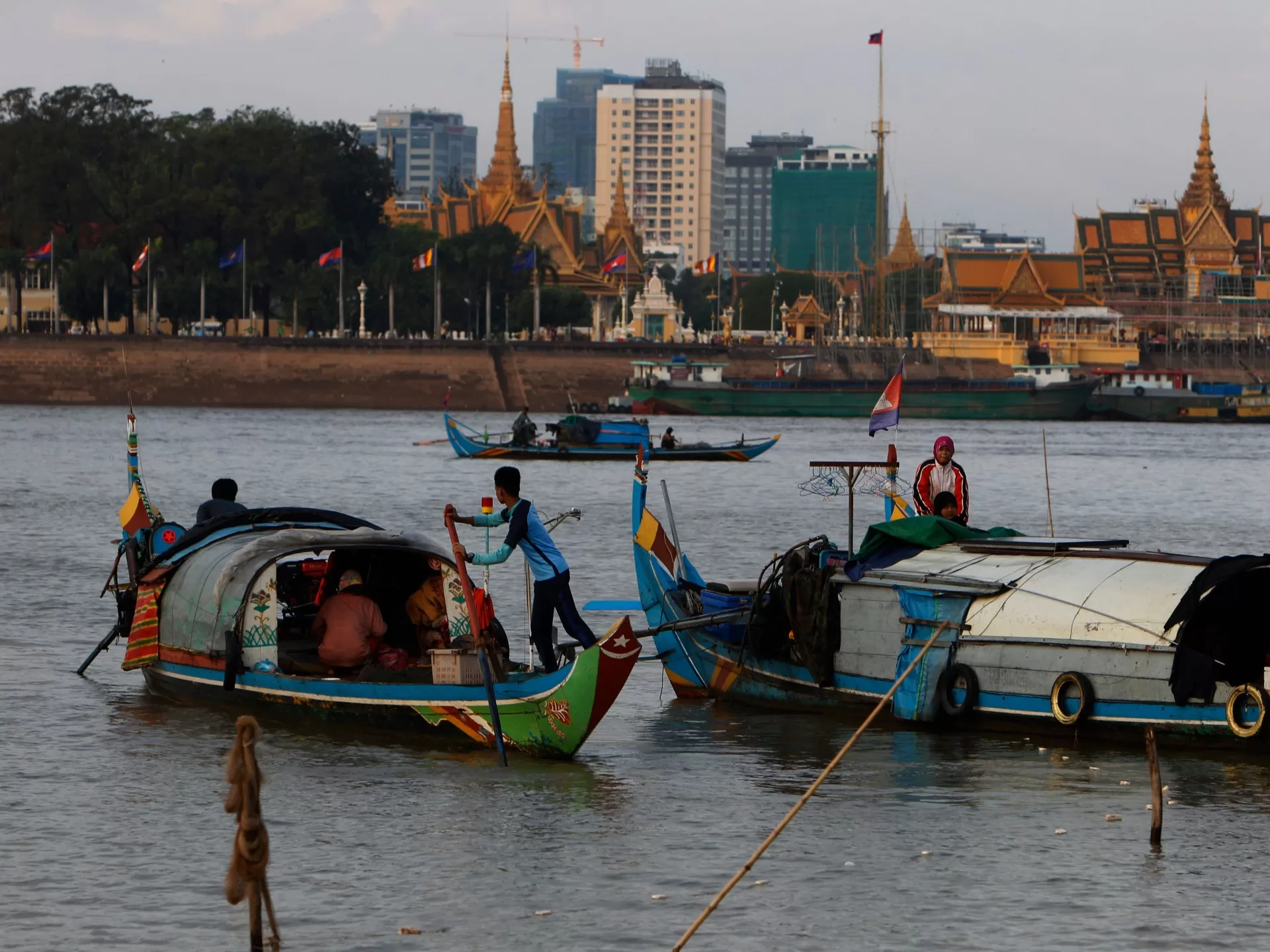Phnom Penh says $1.7bn project economic as Vietnam worries it could be used by Chinese warships.
Cambodia has launched a controversial canal project to link the Mekong River to the sea.
Work on the $1.7bn project kicked off on Monday. Phnom Penh hopes the canal will boost the country’s economy. However, concern over the impact on the region’s environment and foreign relations is rife.
The Funan Techo Canal will run from a spot on the Mekong River about an hour’s drive southeast of Phnom Penh to the Gulf of Thailand. It is due to be completed in 2028.
A pet project of former Prime Minister Hun Sen, the canal is also viewed as a galvanising national undertaking intended to build support for his son and successor. Prime Minister Hun Manet took over at the end of his father’s 38-year rule last year.
The government declared Monday – also Hun Sen’s birthday – a holiday so Cambodians could participate in the “celebration in a joyful, crowded and proud manner”.
At the launch, Hun Manet called the 180km (110-mile) project “historic”, saying it will give the country a “nose to breathe through”.
“This project is not just an infrastructure project, but a nationalistic endeavour,” Hun Manet added. “We must build this canal at all costs.”
Uncertainty
Despite the hopes, the project comes shrouded in uncertainty with neighbouring Vietnam particularly concerned.
Cambodia hopes the waterway will divert exports away from their current reliance on Vietnamese ports.
There is also concern over the role of China, which Phnom Penh has suggested is set to partially fund the project.
The alarm has spiralled to the point that some worry the canal could be used by Chinese warships. Beijing ally Cambodia held its largest joint military exercises with China in May.
In December, two Chinese warships made their first visit to Cambodia’s Ream naval base, sparking fears over greater Chinese influence in the Gulf of Thailand.
Cambodia has repeatedly denied that the base is for use by any foreign power.
The impact of the canal on the environment is another major concern.
Conservationists have long warned that the Mekong, which supports up to a quarter of the world’s freshwater fish catch and half of Vietnam’s rice production, is at risk from infrastructure projects, pollution, sand mining and climate change.
